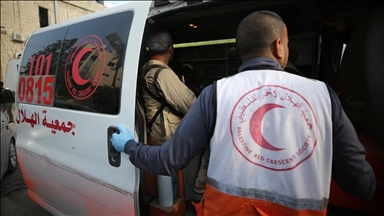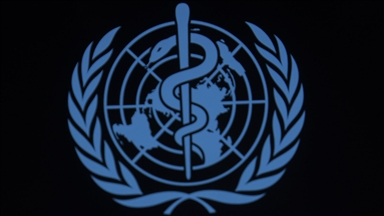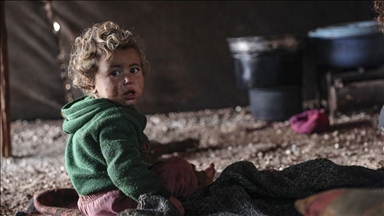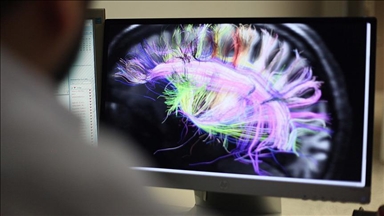Turkey serves as beacon for world solidarity amid virus
While many nations were looking mostly inwards, Turkey also supported other countries with testing, PPE, says expert
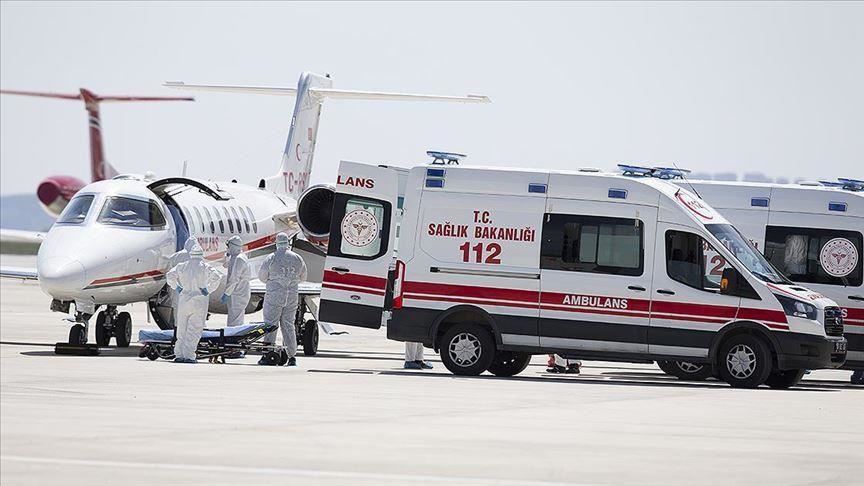
ANKARA
Amid the novel coronavirus pandemic, Turkey has stood as a shining rod of global solidarity and unity, says a health expert.
“While many countries were looking mostly inwards, Turkey has also supported other countries with much-needed testing and PPE [personal protective equipment] supplies,” Dr. Irshad Ali Shaikh, Health Security Lead and Interim Head of the World Health Organization (WHO) office in Turkey, told Anadolu Agency.
Shaikh stressed that Dr. Hans Kluge, the WHO’s Regional Director for Europe, in his last videoconference with Turkish Health Minister Fahrettin Koca appreciated and thanked Turkey for being an example of international solidarity and leadership.
He also noted that the WHO and Turkey’s Ministry of Health (MOH) have agreed to produce a joint report to document and globally share the key attributes behind the country’s successful strategy in fighting the coronavirus pandemic, including the remarkable low levels of mortality among the elderly.
Turkey has turned the corner
“A multitude of readiness and response interventions collectively seem to have helped Turkey turn the corner as far as the COVID-19 pandemic is concerned,” Shaikh said.
“The Public Health Directorate at the MOH was fixated as early as December 2019 on this emerging outbreak of unknown pneumonia when we had only 17 cases in [China’s] Wuhan city in Hubei province.”
“Vigilance and screening at points of entry bought 10-12 weeks of valuable time to have aligned assets and capacities in place to be ready, in addition to the transition of globally accumulating knowledge that elderly people over 65 with comorbidities were at the highest risk,” he added.
For Shaikh, the timing of the Turkish government’s preventive measures has been helpful.
“Turkey was among the first countries in the region to impose restrictions effective Feb. 3 on flights to and from China,” he said.
“Social distancing measures were also introduced around mid-March with a special emphasis on lockdowns for the elderly right after the first confirmed case of coronavirus, earlier than many Western countries.”
He suggested that the WHO monitors the data shared by Turkey’s Health Ministry on a daily basis, and according to the data, Turkey has turned the corner.
He also believes that the comprehensive application of the 3Ts -- Test, Trace (quarantine/isolate) and Treatment measures -- are behind Turkey’s success.
“High numbers of daily tests flanked by the filiation modality for contact tracing have seemingly helped identify cases and contain transmission chains,” he said.
“Testing yields are in low single digits, suggesting the country is now primed, with cautious optimism, to start controlled social life in a measured and cascading manner.”
Only three possible ways pandemic can be ended or managed
According to Shaikh, there are only three possible ways the coronavirus pandemic can be ended or managed.
“We have effective and safe treatment -- like the HIV/AIDS virus, where we don’t have a vaccine yet. But effective and safe treatment has provided longevity to patients and made living with HIV literally a chronic disease,” he said.
“We have an effective and safe vaccine and we can incrementally cover the globe with vaccine provision, a herculean logistical task.”
“The virus has no more humans left to infect – meaning at least over 70%-80% of the population across the globe is infected [herd-immunity], but there is a presumption there that infection once affords effective immunity and that immunity lasts for months and years [e.g. Measles],” he said.
Shaikh said outcome three is dreadful due to tens of thousands of additional deaths and sick individuals worldwide, and global efforts are on outcome one and two.
He also underlined that the WHO is coordinating global efforts to develop vaccines and treatment with researchers across the world to fast track the development of vaccines and therapeutics for the virus.
“As we speak, over 110 vaccines are in development globally, and several therapeutics are in clinical trials. The WHO is committed to ensuring that as medicines and vaccines are developed, they are shared equitably across the globe, ensuring no one is left behind, with a special emphasis on the vulnerable, poor, marginalized and disadvantaged.”
Anadolu Agency website contains only a portion of the news stories offered to subscribers in the AA News Broadcasting System (HAS), and in summarized form. Please contact us for subscription options.



